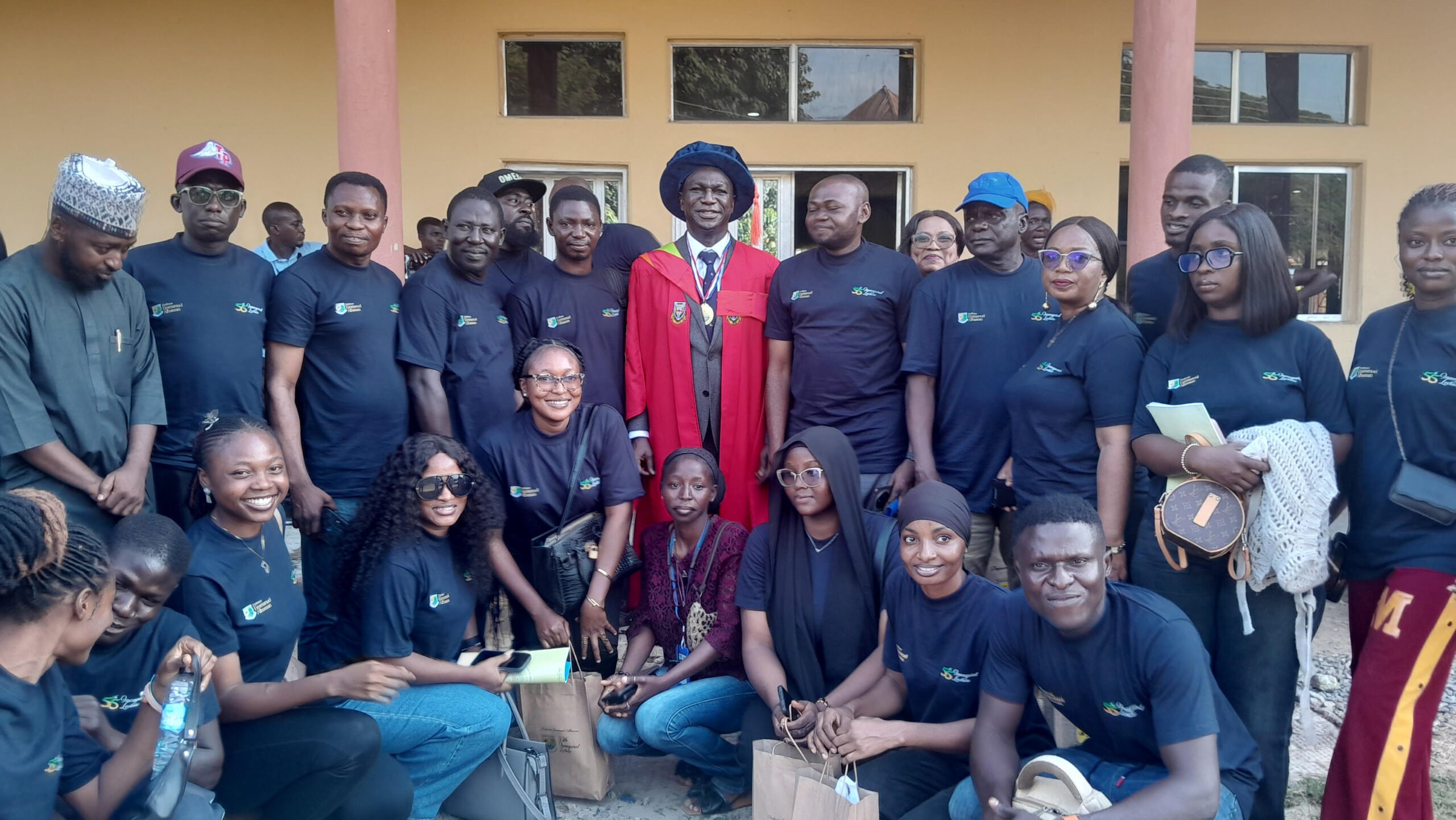Copyright tribuneonlineng

Nigeria is facing a mental health crisis of alarming proportions, with only one psychiatrist available to serve about 880,000 citizens, according to Professor Emmanuel Alhassan, who has warned that the nation’s fragile psychological wellbeing threatens its overall development. Delivering the 55th Inaugural Lecture of the Nasarawa State University, Keffi, titled “From Mental Health to National Wealth: Psychology as a National Development Imperative,” Professor Alhassan said that Nigeria’s prosperity cannot be built on a psychologically distressed population. He said, “Beyond the visible symbols of development—roads, bridges, GDP growth rates—the invisible psychological wellbeing of citizens is at the foundation of national prosperity,” he said. “A nation cannot thrive economically when its people are mentally distressed and emotionally depleted.” Citing data from the World Health Organisation (WHO) and other studies, Alhassan revealed that about 20 percent of Nigerians suffer from a diagnosable mental disorder, yet 80 percent receive no form of treatment. “This is a staggering gap that calls for urgent action from both government and society. It is not just a health challenge; it is a development emergency.” He further highlighted that Nigeria’s suicide rate stands at 17.3 per 100,000 people, significantly higher than the global average of 10.3 per 100,000. According to him, this translates to one Nigerian dying by suicide every 33 minutes—or about 16,000 deaths annually. “Suicide has become a tragic by-product of our social despair. Half of all reported suicides in Nigeria occur among people under the age of 34. We are losing the most productive segment of our population to hopelessness.” The psychology professor lamented Nigeria’s severe shortage of trained professionals, noting that only 250 psychiatrists and 1,251 qualified psychologists currently serve a population of over 220 million. “Nigeria has just one psychologist for every 180,000 citizens. The World Health Organisation recommends one psychologist per 10,000 people. We are operating at less than six percent of the recommended capacity.” He added that most mental health professionals are concentrated in cities like Lagos and Abuja, leaving rural communities “effectively abandoned.” “The majority of Nigerians, especially those in rural and peri-urban areas, have no access to trained mental health professionals. They turn to traditional healers or religious solutions, not out of preference but out of necessity,” Alhassan observed. The professor attributed this crisis to underfunding, stigma, and weak policy integration. He disclosed that only 3.3 to 4 percent of Nigeria’s total health expenditure is allocated to mental health. “Mental health remains chronically under-resourced,” he said. “We cannot build a productive, peaceful society when millions are silently battling depression, anxiety, and trauma without help.” ALSO READ: SWDC intensifies efforts on regional connectivity, integrated devt — MD, Akinola Alhassan called for bold policy reforms to integrate mental health services into Nigeria’s primary healthcare system and expand the recruitment and training of mental health professionals. “We must stop treating mental health as a side issue,” he urged. “It should be a central pillar of our national development strategy. A psychologically stable population is a productive population.” Using the Socio-Ecological Model (SEM) to explain the interplay between environment and wellbeing, he noted that an individual’s mental health is shaped by multiple layers—family, organisation, community, and society. “When families, schools, workplaces, and communities promote mental wellness, the nation gains in productivity, innovation, and resilience,” he said. Professor Alhassan concluded that national development must begin with investing in the psychological capital of the Nigerian people. “If we truly want national wealth, we must first build national mental health,” he declared. “Psychology is not just an academic discipline; it is a national development imperative.” While speaking further, Professor Alhassan also linked Nigeria’s worsening economic realities to a deepening mental health crisis, warning that rising hopelessness is driving up mood disorders and substance abuse across the country. “Economic hopelessness is fuelling a mental health crisis in Nigeria,” he said, citing reports by the World Health Organisation (WHO Afro, 2018) and Substack (2024). “When people lose hope, their minds weaken, and when minds are weak, productivity suffers. But when minds are resilient, fewer workdays are lost.” He noted that this resilience is critical to national productivity, as depression and anxiety currently wipe out 12 billion workdays globally every year (WHO, 2024; Tribune India, 2024). “In Nigeria, where 93 percent of jobs are informal, the loss is felt in the streets, markets, and farmlands. When a street vendor stays home or a farmer delays planting because of distress, the economy feels it. These silent losses eat into agriculture’s 2.5 percent share of the GDP.” Citing research published in the Indian Journal of Psychological Science (2025), Alhassan said poor mental health — stress, depression, and burnout — directly reduces workplace productivity and increases absenteeism and turnover. “Mental disorders are not just medical problems; they are economic drains,” he said. “Every day of lost focus, every case of burnout, and every resignation linked to distress costs the economy.” He described mental health as the “invisible infrastructure” of Nigeria’s economy. “Mental health is like an oil pipeline beneath the soil — unseen, yet vital. When fractured, it leaks wealth,” he said. Alhassan referenced findings from the Nigerian National Survey of Mental Health and Well-Being (Gureje et al., 2010), which estimated that serious mental illness, though affecting only 0.5 percent of the population, results in annual earnings losses of over ₦21.6 billion. “That figure represents lost human potential,” he said. “Imagine how much we could recover if we treated mental health as an investment rather than a charity.” The professor also pointed to evidence from various sectors. He cited studies showing that distress and burnout among teachers in Southeast Nigeria lowered engagement and teaching quality, while cognitive behavioural interventions improved productivity (Ozoemena et al., 2021; Nwakpadolu et al., 2024). Similar trends were recorded in the healthcare, banking, and military sectors, where stress and burnout led to errors, poor performance, and declining efficiency (Olagunju et al., 2021; Alao et al., 2022; Ebhote et al., 2022; Aguwa et al., 2022). “These studies confirm what we already know: psychological distress is not an individual issue; it is a national productivity problem,” he said. He argued that Nigeria’s innovation capacity also depends on the psychological health of its citizens, linking traits like openness, creativity, emotional regulation, and resilience to entrepreneurship and national adaptability. “A nation burdened by trauma and untreated depression cannot innovate,” he warned. “Our innovation ecosystem depends on emotionally stable and mentally resilient citizens.” On the economic front, Alhassan called for government to view mental healthcare as an economic investment, citing the Organisation for Economic Co-operation and Development (OECD) report which shows that nations lose up to 4 percent of GDP to poor mental health. “Globally, poor mental health costs nations billions in lost productivity. But every naira spent on mental health yields multiple returns in recovered efficiency, focus, and output,” he said. He urged Nigeria to adopt a “mental-health-in-all-policies” approach, integrating psychological wellbeing into economic, educational, and labour reforms. “Mental health affects every sector. If we truly want national wealth, we must first invest in national mental health. The mind is our most valuable natural resource.” He added. Speaking earlier, the Vice-Chancellor of Nasarawa State University, Keffi (NSUK), Professor Sa’adatu Hassan Liman, underscored the critical condition of mental health and its impact on national development. She pointed out that mental health is not just a personal issue, but a national imperative that affects productivity and overall well-being. According to Professor Liman, “As we have clicked on the theme, we are reminded that mental health is not just a personal issue, but an intentional imperative.” She stressed the importance of recognizing the role of psychology in promoting mental health and the need for evidence-based interventions and policies that support mental well-being. ALSO READ: Kano: Police arrest suspects, recover stolen SUV belonging to Air Force officer The Vice-Chancellor noted that millions of people globally suffer from mental health disorders, resulting in substantial economic losses and social problems. In Nigeria, the situation is particularly dire, with limited access to mental health services and a lack of awareness about mental health issues. Professor Liman reiterated the need to prioritize mental health to unlock the potential of citizens, enhance productivity, and create a more resilient and compassionate society. She mentioned that NSUK has established initiatives to address mental health issues and provide support to those in need. NIGERIAN TRIBUNE



